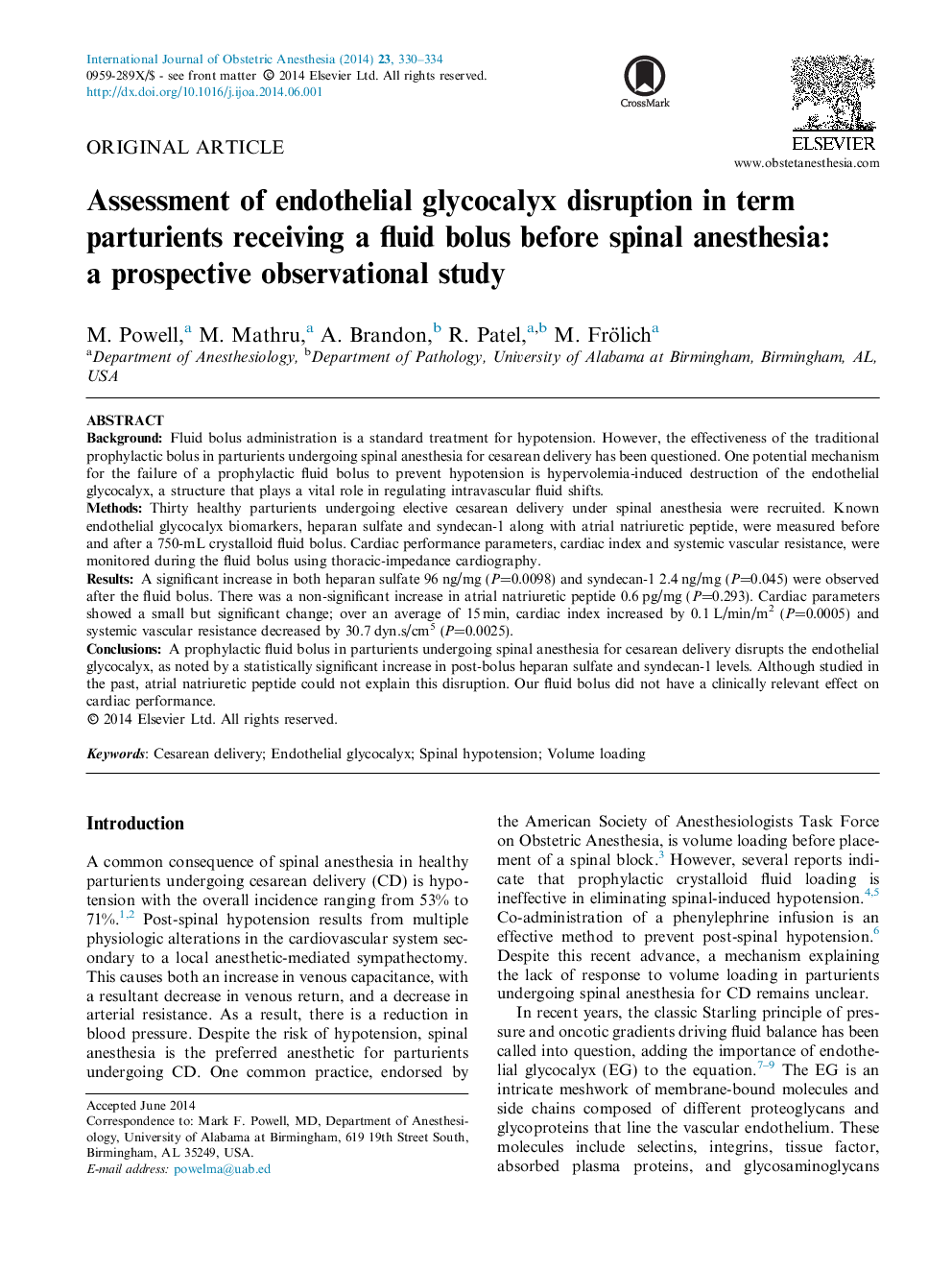| Article ID | Journal | Published Year | Pages | File Type |
|---|---|---|---|---|
| 2757693 | International Journal of Obstetric Anesthesia | 2014 | 5 Pages |
•The endothelial glycocalyx is important in maintenance of plasma oncotic pressure.•Heparan sulfate and syndecan-1 were used to note endothelial glycocalyx disruption.•A significant increase in both markers was noted after a prophylactic fluid bolus.•Volume loading healthy parturients can disrupt the endothelial glycocalyx.
BackgroundFluid bolus administration is a standard treatment for hypotension. However, the effectiveness of the traditional prophylactic bolus in parturients undergoing spinal anesthesia for cesarean delivery has been questioned. One potential mechanism for the failure of a prophylactic fluid bolus to prevent hypotension is hypervolemia-induced destruction of the endothelial glycocalyx, a structure that plays a vital role in regulating intravascular fluid shifts.MethodsThirty healthy parturients undergoing elective cesarean delivery under spinal anesthesia were recruited. Known endothelial glycocalyx biomarkers, heparan sulfate and syndecan-1 along with atrial natriuretic peptide, were measured before and after a 750-mL crystalloid fluid bolus. Cardiac performance parameters, cardiac index and systemic vascular resistance, were monitored during the fluid bolus using thoracic-impedance cardiography.ResultsA significant increase in both heparan sulfate 96 ng/mg (P=0.0098) and syndecan-1 2.4 ng/mg (P=0.045) were observed after the fluid bolus. There was a non-significant increase in atrial natriuretic peptide 0.6 pg/mg (P=0.293). Cardiac parameters showed a small but significant change; over an average of 15 min, cardiac index increased by 0.1 L/min/m2 (P=0.0005) and systemic vascular resistance decreased by 30.7 dyn.s/cm5 (P=0.0025).ConclusionsA prophylactic fluid bolus in parturients undergoing spinal anesthesia for cesarean delivery disrupts the endothelial glycocalyx, as noted by a statistically significant increase in post-bolus heparan sulfate and syndecan-1 levels. Although studied in the past, atrial natriuretic peptide could not explain this disruption. Our fluid bolus did not have a clinically relevant effect on cardiac performance.
